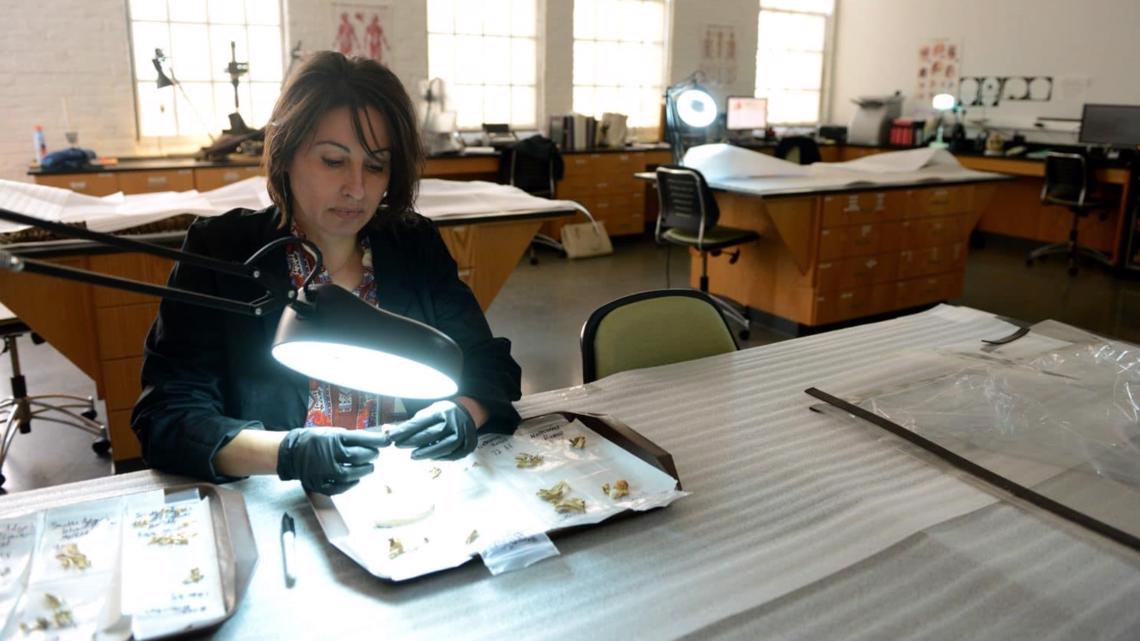CHARLOTTE, N.C. — Through a new partnership with the North Carolina Unidentified Project, the Charlotte-Mecklenburg Police Department (CMPD) is taking steps to bring closure in cases involving unidentified victims.
It’s a project that uses forensic genetic genealogy to assist law enforcement in identifying victims.
Bryan Crum, with CMPD’s violent crime division, said the North Carolina Unidentified Project received a grant to assist in identifying North Carolina’s 130 unidentified persons. He said these are people who have been found by law enforcement, but investigators haven’t been able to figure out who they are.
Crum said the first phase of the project paid for the extraction of DNA analysis and research from 13 unidentified people. The DNA data is loaded into ancestry and genealogy databases, such as GEDmatch and FamilyTreeDNA, to try to identify potential matches or family members of the unidentified person.
Of the 13 samples the North Carolina Unidentified Project worked on, Crum said six of the samples were too degraded to reach a conclusion. The project was able to get profiles from seven previously unidentified people and successfully identify them.


Closing a 2010 case
In October of 2010, a man’s remains were found just north of Uptown Charlotte.
WCNC Charlotte covered the case in 2010, reporting that a skull was found in a concrete draining ditch off Wadsworth Place. It left detectives with CMPD wondering who this person was for nearly 12 years.
Thanks to the new project, Dr. Ann Ross, a North Carolina board-certified forensic anthropologist with the department of human identification at NC State University, and Leslie Kaufman, a forensic genealogist and owner of First Genes, LLC, were able to provide closure to the case.
The medical examiner’s office said at the time that the skull belonged to an African American man and showed no signs of visible trauma. However, the case went cold from there.
"Unfortunately, [law enforcement] can't do anything until they know who the person was,” Kaufman explained. “They've got to know their story. They got to know who this person was."
Kaufman said she worked on this case for about nine months trying to piece together a family tree of possible relatives to the unidentified person.
Matt Hefner, a CMPD detective, said the project loaded the DNA data from this case into GEDmatch but needed more money to load it into FamilyTreeDNA. CMPD received approval to pay for this at a cost of $650. After they did, Kaufman received the matches.
Kaufman’s research led her to a man named Napoleon McNeil, who was last seen in 2009 in Raleigh.
“Leslie Kaufman and I reached out to the brother of Napoleon McNeil, and we asked him if he’d be willing to give a DNA sample,” Hefner said. “He agreed. We got that sample. We loaded it into FamilyTreeDNA, and the match came back a positive [match].”
Police knew then that they had positively identified the remains found in 2010 as 45-year-old Napoleon McNeil.
“Had it not been for this genealogy work and Leslie Kaufman, we never would have determined this person's identity,” Hefner said.
Hefner said McNeil was homeless and living on the streets in Raleigh. He had no known ties to Charlotte, and there are still questions as to how he ended up in the Queen City.
McNeil’s death is classified as "undetermined" with no signs of a homicide or trauma, Hefner said.
Kaufman said it is “thrilling” to be able to give people back their names and give families answers.
“It’s the most wonderful thing in the world to identify somebody and tell somebody that’s been looking for their person, their loved one for years and not having any answers,” Kaufman said. “And it may not be the answer that they want, but it’s the answer of the truth, and they need the truth.”
Crum said CMPD currently has 11 sets of remains that are unidentified dating back to 1975.
"Prior to forensic genetic genealogy, we had to rely on reports to make educated guesses to go out and find family members to potentially link our victims to, and this tool has really just opened that up,” Crum said.
The department is going to continue to work with the North Carolina Unidentified Project in the future to provide more closure to families.
For families with missing loved ones, Kaufman encourages immediate family members to take any DNA test and upload the results to GEDmatch and FamilyTreeDNA to build up the database and aid the project and law enforcement in their search to identify victims.
Contact Kendall Morris at kmorris2@wcnc.com and follow her on Facebook, Twitter and Instagram.


